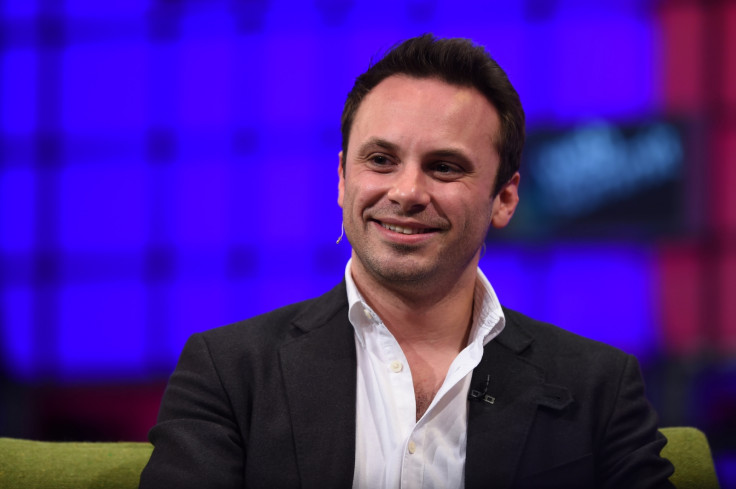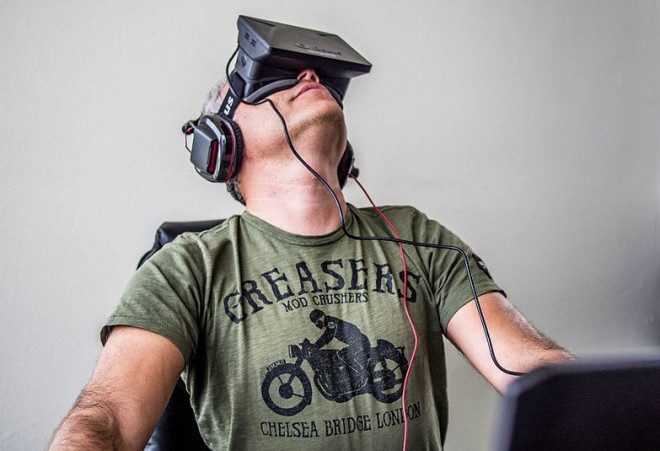Oculus Rift Will be as Transformative as the Telephone and the Internet

The CEO and founder of Oculus Rift Brendan Iribe says that virtual reality is "bigger than anything we've seen in the past" and will be as important as the telephone or the internet.
Virtual reality is still in its infancy, but the founder of the company leading the charge in the area believes that it will be a transformative technology which will be as influential as the telephone, the personal computer or the internet.
Speaking at the opening day of the Dublin Web Summit, Brendan Iribe said that virtual reality will provide applications that "will appeal to billions of people".
Iribe said it was too early to say what the "killer app for VR" will be, but he added that while Oculus is rooted in gaming and will have a lot of applications in that area, this may not be the technology's lasting impact.
"For me where this is going to really transform the world, long term, is when we can have face-to-face communications ... when we can put on a pair of sunglasses and we can have this kind of conversation but can be in different places in the world."
Iribe said the impact of VR could be as important as that of the telephone, the internet or the personal computer.
Supercharged
Oculus hit the headlines seven months ago when it was purchased by Facebook for $2 billion (£1.25bn) and the investment and expertise given by the social network has allowed Oculus to "supercharge" its development with the number of employees jumping from around 50 at the beginning of the year to almost 250 today.
While there has been numerous prototypes created, Iribe is reticent to announce a specific date for when the first consumer version will be released.

Iribe said: "We want to get it right. We are not going to ship until we get it right. But we don't want that to be four or five years from now" adding "we are getting very close. [We're] still working on ergonomics of the headset and the input."
Pressed for a more specific timeline, Iribe said that the launch was "many months, not necessarily years, away". Cresent Bay is the codename for the company's most recent prototype which was unveiled in September, and Iribe said that in terms of hardware, the headset is now very close to what the final consumer model will be.
VR pioneers
Virtual reality is something which has been around for many years but it is only in the last three or four years that serious advancements have been made in the area.
Iribe said: "There is this kind of educational process. We are all learning VR together, we are all pioneers. This is a brand new industry. There aren't that many VR headsets out there yet, there aren't that many consumer headsets out there - zero in fact at the moment - and we are all learning together and that's what makes it exciting."
Iribe revealed that he was impressed with Elon Musk's decision to open up all of Tesla's patents relating to their electric vehicles and while Oculus hasn't gone quite that far, it is working closely with others in the industry.
Motion sickness
To that end, Oculus invited Sony, which is developing its own VR headset called Project Morpheus to work with its PlayStation platform, to be among the first to see the latest Oculus Rift.
The reason? Iribe said it was an attempt to help move the industry forward as a whole and not "poison the well of VR".
Iribe added: "We are encouraging other companies, especially big companies, 'don't put out a product until you have solved [a particular problem]'. We have been very open."
While motion sickness has to date been a big stumbling block for the development of VR headsets, Iribe believes that will be "behind us" in a couple of years but that the main problem facing Oculus now is to develop a new input designed specifically for virtual reality.
Iribe said the company is developing lots of different potential inputs from gloves to wallpapers, but so far nothing has worked the way they want it to.
Whether or not virtual reality is going to be as transformative as Iribe believes remains to be seen, but the launch of the Oculus Rift in 2015 will give us a very good idea of the demand for the technology among consumers.
© Copyright IBTimes 2025. All rights reserved.




















